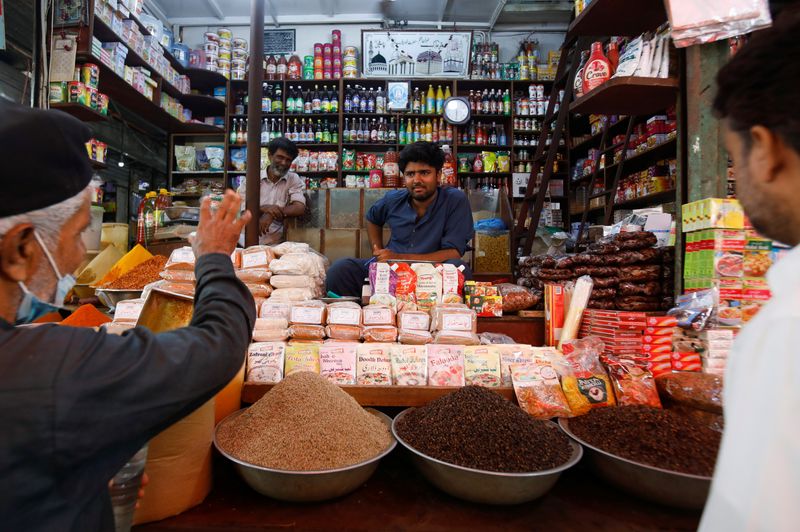By Asif Shahzad
ISLAMABAD (Reuters) -Pakistan's November CPI is expected to decline marginally and may remain in the range of 23%-25%, the country's finance ministry said in its monthly outlook on Tuesday, as the South Asian nation faces a balance of payment crisis.
The country's expenditure grew 26% in the first quarter of the financial year, the ministry said, adding that its fiscal deficit reached 1% of GDP in the same period.
The outlook said inflationary pressure was expected to ease marginally month-on-month due to smooth domestic supplies, unchanged energy prices in November and a stable exchange rate.
It said the current account deficit declined to $2.8 billion in the first quarter of the current fiscal year, against $5.3 billion in the same period last year.
Pakistan's macroeconomic stability is in a tailspin with fast depleting foreign reserves and a widening current account deficit following devastating floods that are estimated to have caused more than $30 billion in losses.
Pakistan has sought support from the Bank of China to restore macroeconomic stability, the finance ministry said on Tuesday.
Pakistan's finance minister Ishaq Dar briefed the president of the Bank of China, Liu Jin, about the country's financial and fiscal conditions, the ministry said in a statement.
The Chinese commercial bank has previously helped Pakistan, which played a significant role in easing pressure on the external account and meeting budgetary needs, it said.
The International Monetary Fund (IMF) wants Pakistan to cut expenditure as it conducts the ninth review of a $7 billion bailout programme.
Pakistan and the IMF both have said this week that they have started online talks on the review.
The IMF in August approved the seventh and eights reviews of the bailout programme - agreed in 2019 - to allow the release of more than $1.1 billion.
The ninth review has been pending since September.

The lender has said the finalisation of a floods recovery plan was essential to support discussions and continued financial support from multilateral and bilateral partners.
Pakistan secured a $6 billion bailout in 2019, which was topped up with another $1 billion earlier this year.
(Reporting Asif Shahzad in Islamabad; Writing by Shilpa Jamkhandikar; Editing by Alison Williams and Alex Richardson)